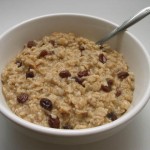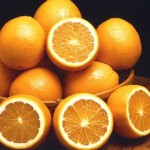Organic table salt has gotten a bad reputation over the years due to studies that claim it is bad for our health. In fact, many experts advise that healthy cooking means less organic table salt. Organic table salt has also been deemed to play a part in memory loss specifically short term memory loss, hence the campaign to reduce organic table salt intake. So if organic table salt is bad which salt form is part of the healthy foods list?
Organic Sea Salt is Healthy Food
Organic sea salt, unlike organic table salt, is considered to be one of the healthy foods. Organic sea salt comes directly from the sea to you. Organic sea salt is considered a healthy food because it aids in balancing blood sugar levels; help with absorption of food in our intestines; act as a strong and natural anti-histamine; and clear the lungs of mucus and phlegm. Organic sea salt brings out the natural flavor of food and makes the food taste better than ordinary organic table salt. Organic sea salt is also generally much more expensive than organic salt.
Organic Table Salt: Also one of the Healthy Foods
The latest research claims that organic table salt is also part of the healthy foods list. According to the report, there is no need to eat less of organic table salt but it can also be positively dangerous for some people’s health. Prof. Deiderick Grobbee, a cardiovascular specialist and an author of the report said “If people stick within a range of moderate sodium intake, which we normally get from organic table salt in our food, there is no material variation to the risk of mortality.” There was little to be gained by cutting organic table salt for anyone on a typical Western diet who eats the equivalent of 16g or three-and-half teaspoonfuls a day.
 Organic table salt is ubiquitous in healthy foods and consumed in relatively constant amounts in our diets. Organic table salt is also a healthy food, essential to our health and development. Most of our organic table salt intake comes from foods, some from water. The universal, consistent appetite for organic table salt makes it the ideal vehicle for iodine fortification to prevent mental retardation.
Organic table salt is ubiquitous in healthy foods and consumed in relatively constant amounts in our diets. Organic table salt is also a healthy food, essential to our health and development. Most of our organic table salt intake comes from foods, some from water. The universal, consistent appetite for organic table salt makes it the ideal vehicle for iodine fortification to prevent mental retardation.
The Rotterdam Study involved almost 8,000 people in their fifties and above. Each person’s organic able salt intake was estimated from a nightly urine sample and compared with their blood pressure over a month. The findings showed that as long as their organic table salt intake was moderate there was an insignificant effect on blood pressure.
Other scientists also say that the guidance to reduce organic table salt intake could be dangerous to pregnant women and the elderly. Prof. Markus Mohaupt, from the Inselspital Academic Health Centre, Bern, in Switzerland, found that pregnant women with pre-eclampsia could benefit from up to 20g of organic table salt a day. The elderly are also at risk if they stick to a low organic table salt diet, according to Prof. Ingo F, gen, a cardiovascular specialist from Kliniken St Antonius, in Germany. His findings showed that one in 10 of the older population suffered from sodium deficiency which could result in nervous disposition, hallucinations, muscle cramps and hip fractures.
An eight year study of a New York City hypertensive population stratified for organic table salt intake levels found those on low-organic table salt diets had more than four times as many heart attacks as those on normal-organic table salt diets – the exact opposite of what the “organic table salt hypothesis” would have predicted .
But although this new development claims organic table salt is one of the healthy foods, one must keep in mind that intake moderation – even on healthy foods such as organic table salt – is still the main key to a healthy living.














